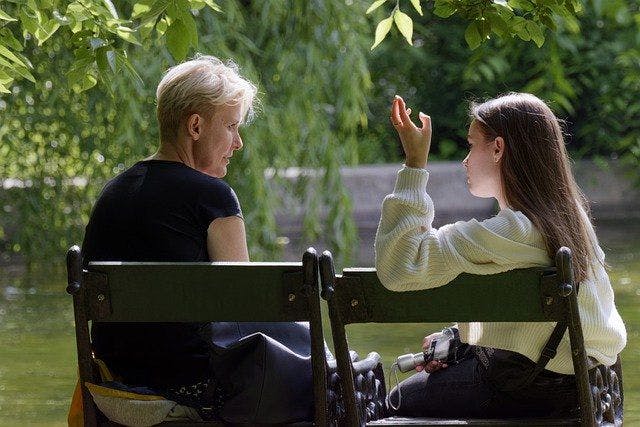Free guide released to help parents talk to children about Black Lives Matter
updated on Jun 13, 2020

How do I talk to my child about Black Lives Matter? A new, free guide has been created to help British parents explain Black Lives Matter protests to children and teens
There’s so much going on in the world right now, it can be tough to face the newscycle as a fully grown adult - let alone for young people and children. As a parent, it can be tough to know just how much children are hearing, seeing, and understanding. In the midst of one of the biggest civil rights, how do we judge what our children need to know about?
Black Lives Matter protests began making headlines in late May, following the death of George Floyd in police custody. With heart-wrenching footage of the brutal incident quickly going viral. It has since brought media, public, and government focus firmly back to the racial injustices faced by many - both at the hands of police, and in day-to-day life.
While many free resources have begun appearing to help us understand how to be better allies, how to take part safely in protests, and how to continue pushing for real change, it can be tricky to find resources that can be shared with children. And while beloved shows such as Sesame Street have sought to explain to children in an age-appropriate manner what protesting is, and why it is happening, the focus is often more for american audiences.
“Not all streets are like Sesame Street. … What we are seeing is people saying 'enough is enough.' They want to end racism.”@Elmo’s dad Louie explains why people are protesting across the US. https://t.co/icV04F4FNW #CNNSesameStreet pic.twitter.com/1efrMAzZ8V
— CNN (@CNN) June 6, 2020
In responce to this, childcare platform Yoopies UK has created a free, downloadable guide for parents. Focusing on the Black Lives Matter movement, A Parent’s Guide to Black Lives Matter is designed to provide an easy-to-use resource to help parents start these important, but challenging, conversations with children of all ages.
Created to be family-friendly, the guide includes resources, tips, and advice to help teach children about racial inequality, racial hierarchies, and white privilege in modern-day society. It also includes advice and guidance on how we can combat racism today.
Providing a great starting point with advice on big topics and questions faced by parents and kids, focuses within the guide include:
- What is the Black Lives Matter (BLM) movement?
- How do I explain George Floyd to my children?
- How do I open a conversation with children on race and racism?
- How do I explain White Privilege?
- It's not just a narrative of struggle
- The danger of saying 'My child isn't racist'
- Being a role model through action
- Further educational resources for all the family
Race and racism are huge topics. While no single guide can claim to be a one-stop for all of the information out there, this new guide gives a great basis for parents looking to start - and keep - the conversation going with their children. Created specifically with a British perspective, contributors to the guide included individuals from white and BAME backgrounds.
Including links to further online resources explaining tough topics – such as white privilege – in an accessible way, as well as books for younger children (1-10), older children (11-16), and parents, the guide also highlights podcasts, films, and more to help you continue having the conversation.
We all have a responsibility to stand up and speak out when we see something we know is wrong. Racial injustices and inequalities are so deeply ingrained in everyday life and the systems that we live in, that those of us who are privileged may not even notice them when they are happening around us. It’s our responsibility to better educate ourselves and our children to help eradicate those unjust systems, to promote kindness, empathy, and understanding. It’s not meant to be an easy or a comfortable thing to do.
It’s OK to not know where to begin. Taking that first step towards making a difference is what matters. We have already begun seeing changes, thanks to individuals who have spoken out across the world to confirm the belief that racism is never acceptable. Let’s continue to make sure that this message is passed on to our children in a way that they can understand.
To show your support, find out more about Black Lives Matter, or to donate, visit Black Lives Matter. To find out more about how you can be a better ally, check out the Guide to Allyship.

